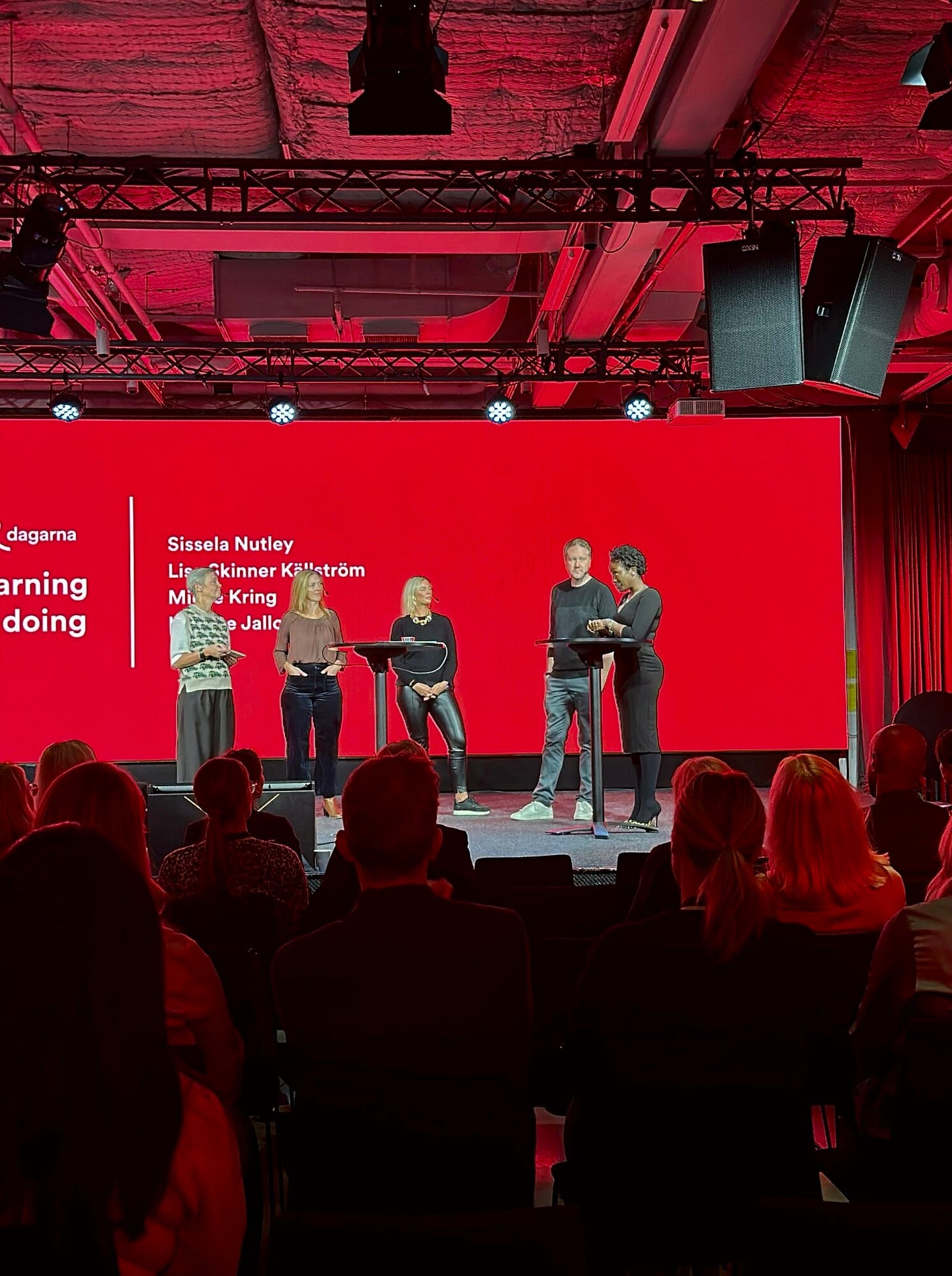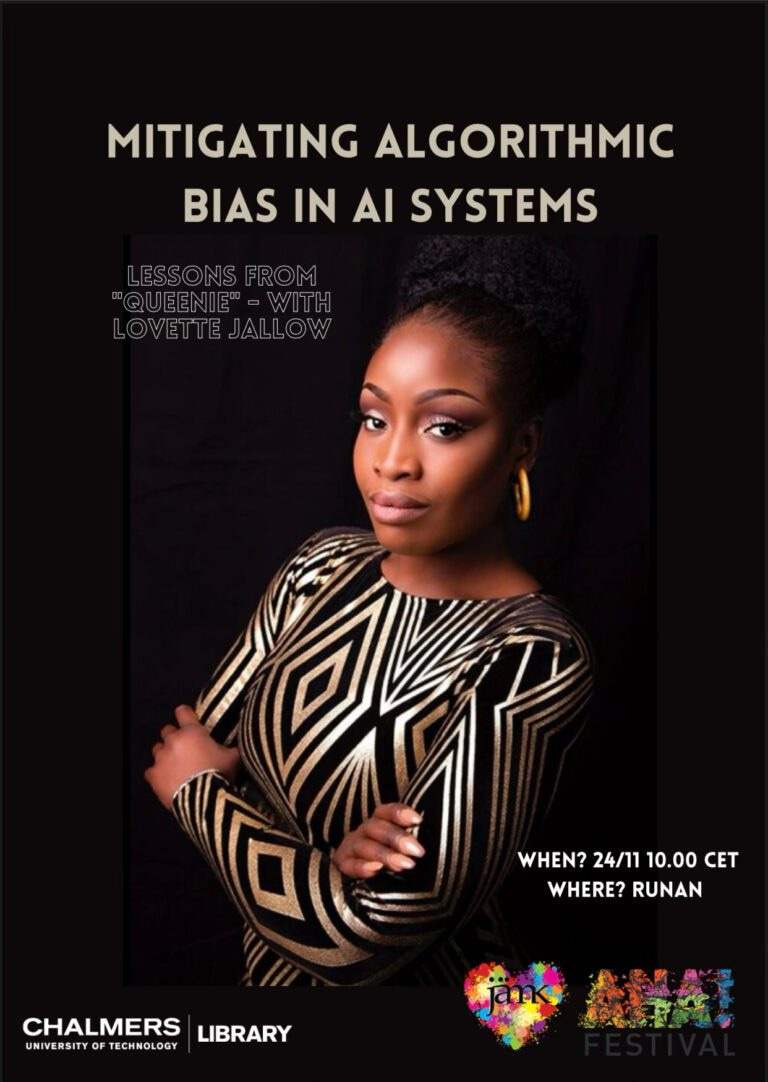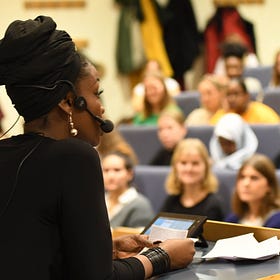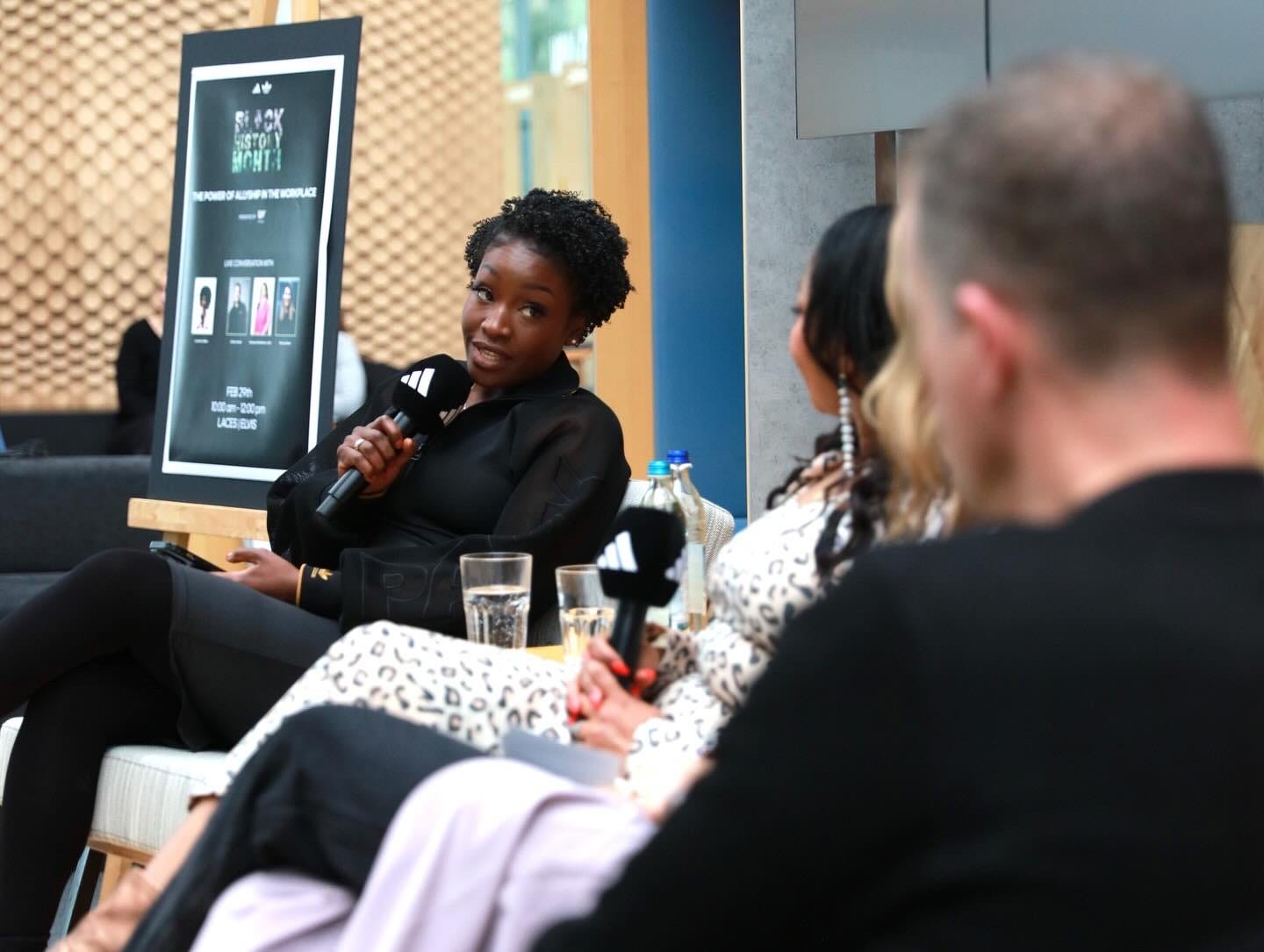Sweden’s Job Market Is Rigged by Nepotism
If you’re racialized, foreign-born, or outside the network - you were never meant to get in. Here are the facts.
Sweden’s Meritocracy Myth and Why Your Qualifications Don’t Guarantee Belonging

Sweden tells a comforting story about itself. That here, your qualifications matter. That if you study hard, learn the language, adapt, contribute, and wait long enough, you’ll be included. But for many racialized people, especially Black and immigrant Swedes, that door never opens. Or worse, it opens just enough to gaslight you into thinking it’s your fault when you’re kept out.
This isn’t about individual failure. It’s about a system rigged to reward familiarity, not fairness. One that hides behind “neutrality” while sorting people by proximity to whiteness. One that increasingly offloads that sorting to biased AI systems, coded to replicate the same exclusions in cleaner, faster ways.
And if you’re still being told to “just network” or “polish your CV,” this first section is for you. I write this not just as a researcher, strategist, or consultant—but as someone who has lived what I describe.
I came back to Sweden with a UK degree, fluent in several languages, and entered the corporate world in Stockholm. None of it mattered.
After a national TV appearance where I spoke publicly about racism, I was called into HR the next day and quietly paid to leave. My growing public voice wasn’t met with dialogue. It was met with removal. Luckily I was already headhunted by former colleagues to a higher paying job by a bigger company two doors down and signed a book deal my ancestors are bigger than the devils intentions in this cold country.
The second time, they placed a white woman above me who took issue with everything from not being allowed to touch my hair to the fact that British and American clients preferred working with me. Her retaliation escalated until I recorded HR telling me to “just accept it”—because “that’s just how she is.” That too ended in a severance agreement meant to silence me. I wrote about it anyway, in Främling i vita rum.
That was my entry into Sweden’s “neutral” professional landscape.
Now let’s talk about how that system works—and who it works for.
Nepotism in Sweden and Who You Know Still Gets Hired
Sweden doesn’t call it nepotism, but that’s exactly what it is.
Roughly 7 out of 10 jobs in Sweden are never publicly advertised. This isn’t a side note—it’s the structure. The majority of employment opportunities are filled through informal networks, referrals, and personal recommendations. That means if you're not already connected—socially, culturally, linguistically, or racially—you're unlikely to even get in the room.
Arbetsförmedlingen refers to this as the dolda jobbmarknaden, the “hidden job market.” But hidden from whom? It’s only invisible if you weren’t born into the right proximity—if your parents didn’t go to the same schools, if you don’t summer in the same archipelagos, if your name doesn’t signal safety to someone scanning the applicant pool for “chemistry.”
This is how whiteness protects itself in Sweden—not through overt exclusion, but through trust passed along networks of sameness.
And when racialized applicants do make it through the door, they’re often met with unspoken codes:
“We didn’t feel the fit was right.”
“We’re looking for someone who aligns with our values.”
“We had to go with someone more culturally in tune.”
These statements don’t speak to skill. They speak to social familiarity. The kind of familiarity that white Swedes extend to each other without needing to justify it.
In practice, this means white mediocrity is constantly uplifted through referrals, while racialized excellence is routinely sidelined, asked to prove itself, again and again, in systems that were never built with us in mind.
If the majority of jobs are distributed through private networks, and those networks remain racially homogeneous, then Sweden is not a meritocracy. It is a closed loop.
Whiteness and Trust in Swedish Workplace Culture
Swedish workplaces pride themselves on being flat, collaborative, and based on trust. But the question is—who gets trusted?
“Trust” in Sweden is racialized. It's extended reflexively to those who mirror the dominant culture—white, Swedish-born, fluent in the right dialect, quiet in the right way, sociable in a specifically Swedish mode. For everyone else, “trust” becomes something you must constantly earn, perform, and often still never receive.
This isn’t just social—it’s structural. According to a 2022 Länsstyrelsen Stockholm report, only 1% of CEOs in Sweden’s 500 largest companies have a foreign background, despite over 25% of the population being foreign-born. That gap isn’t about talent. It’s about who’s allowed to be seen as trustworthy.
Even in public institutions and international companies, leadership remains overwhelmingly white. And when racialized people are hired, they’re often tracked into junior, project-based, or "diversity-facing" roles with no real path to power.
The language of “fit,” “neutrality,” and “safety” in hiring is a smokescreen. It masks a deeper fear: that someone who challenges the norm might disrupt the comfort of those who’ve never had to navigate exclusion.
Let’s be clear—Swedish “neutrality” isn’t neutral. It’s coded. And for racialized job seekers, that code is about whether your presence will disturb the homogeneity of the lunch table, not whether you can do the work.
This dynamic creates an environment where white vulnerability is protected, while racialized competence is pathologized.
You’re not “safe.”
You’re “too confident.”
You’re “a risk.”
You’re “not quite ready.”
You’re “maybe next time.”
This is how trust functions as a gate, and whiteness is the key.
Hiring Discrimination in Sweden from CV to Interview
Bias doesn’t wait until the interview. It’s embedded from the first contact—and it shapes every decision point along the way.
Let’s start with the CV. Numerous studies, including those by Carlsson & Rooth and later confirmed by the Equality Ombudsman (DO), have shown that Swedish employers consistently favor applicants with “Swedish-sounding” names, even when all other qualifications are identical.
This means a candidate named Johan with a mid-level degree often gets called in faster than someone named Ahmed or Fadumo with a master’s and more relevant experience. The issue isn’t just racism—it’s pattern recognition shaped by cultural preference. Hiring managers “see themselves” in Johan. With Ahmed, they might see risk, difference, or someone who “might not fit in.”
Even if a racialized candidate makes it to the interview, they encounter another layer of coded assessment:
"You’re impressive, but we’re not sure you’d thrive in our culture.”
"Do you think you’d be comfortable here?"
"Your communication style is different than what we’re used to.”
These are not objective statements. They are filtered through whiteness as the default—a lens that reads confidence as aggression, directness as discomfort, and difference as disruption.
Let’s also name that many racialized Swedes adapt heavily to get through this stage. Some change the spelling of their name. Others modify their accent, tone down natural expressions of personality, or avoid bringing up cultural markers that might signal “too different.” It’s exhausting. And yet, it often still doesn’t work.
This is not about skill. It’s about perception.
From the moment your CV hits the inbox, to the final handshake—or lack thereof—you’re being judged by whether you make the existing culture feel affirmed, not challenged.
And if the culture is built on sameness, no amount of experience will make your presence feel “comfortable” to the people doing the hiring.

Why Diversity in Sweden Fails Without Pay Equity
Exclusion in Sweden’s job market isn’t a glitch in the system. It is the system.
It’s not just that racialized people are overlooked—it's that the conditions that keep them out are actively maintained, quietly normalized, and institutionally protected.
Let’s take the Equality Ombudsman (Diskrimineringsombudsmannen, DO) as a case study. While it exists to investigate discrimination, its reach is limited. In practice, the DO handles thousands of discrimination complaints every year but few lead to consequences, and even fewer result in structural change.
The tools are reactive, not preventive. Employers are rarely held accountable, and the emotional burden of proving discrimination falls almost entirely on the individual.
Meanwhile, HR departments across Sweden are often unequipped—or unwilling—to address race explicitly. Diversity training (if it happens at all) tends to focus on superficial awareness rather than power structures or policy reform. And many companies continue to frame racism as an issue of “individual bad actors” rather than recognizing it as the outcome of systemic design.
Sweden’s broader cultural refusal to acknowledge race in law or public policy only compounds this problem. We don’t collect race-based statistics. We talk about “foreign background” or “immigrant status,” even when many of the people being excluded were born here.
This avoidance means racism gets treated as anecdotal, even when it’s clearly patterned. It allows institutions to pretend that because racism isn’t named, it isn’t happening.
And it keeps exclusion safely dislocated from the system that produces it—so the conversation never reaches the root.
What this creates is a closed loop of plausible deniability:
“We didn’t discriminate.”
“We just didn’t see the right fit.”
“We’re already diverse in other ways.”
But when leadership is still white, hiring is still informal, and policy is still silent on racial equity—then exclusion isn’t accidental. It’s infrastructure.
Sweden’s Performative DEI and the Use of White Women to Protect Power
Walk into any major Swedish company or institution today and you’ll likely find a diversity statement on their website. You’ll see stock photos of “inclusive” teams, carefully curated to suggest multicultural belonging. There might even be a page about “equality goals” or “working environment values.”
But when you look at who’s leading those organizations—who signs the checks, sets the vision, or decides who gets hired—you’ll see a different story. One where power remains concentrated in the hands of white Swedes, often men, almost always born into the right networks.
Diversity in Sweden is often cosmetic. Racialized people are visible in marketing, but invisible in decision-making. You might be hired to represent a “diverse perspective,” but rarely trusted to lead, manage a budget, or influence policy.
And when racialized professionals speak up about these patterns, we’re met with the same deflections:
“We’re working on it.”
“This takes time.”
“We’re doing our best.”
Meanwhile, we're still paid less. Still underpromoted. Still seen as an HR risk rather than a leadership asset.
A 2021 report by Saco (Swedish Confederation of Professional Associations) showed that racialized professionals with university degrees earn significantly less than their white counterparts in comparable roles. Many are overrepresented in underpaid sectors—especially in care work, education, and manual labor—while being underrepresented in tech, finance, media, and executive leadership.
These aren’t pipeline issues. This is systemic sorting.
Until Sweden begins tracking outcomes instead of optics, and until institutions link their diversity commitments to pay equity, promotion access, and structural reform, these statements will remain just that—statements.
Nice to read.
Easy to ignore.
Safe for power.
Networking Won’t Undo Whiteness
People love to give advice when you’re locked out of the system.
“Just network more.”
“Be patient.”
“Keep applying.”
“Start at the bottom and prove yourself.”
But what they rarely name is this: the system was never built with us in mind.
Networking won’t undo a structure that values sameness over skill.
Polishing your CV won’t override algorithms trained to favor Johan over Jamal.
Adapting your tone, your hair, your name, your cadence—none of it will rewrite the unwritten rules of proximity, access, and inherited power.
What’s rewarded in Sweden is not just competence—it’s comfort. Specifically, the comfort of whiteness.
And for those of us who can’t—or won’t—perform it, the door often remains closed, no matter how many times we knock.
Meanwhile, the tools that could level the field—anti-discrimination policy, equitable hiring practices, AI hiring platforms—are either toothless, unregulated, or built on data that replicates the very bias they claim to eliminate.
The result is a labor market where:
Jobs are passed through private networks.
Bias is automated and scaled.
Trust is racialized.
And power is hoarded through familiarity, not fairness.
Until institutions in Sweden are willing to confront the way whiteness defines competency, neutrality, and trust, exclusion will remain the default—and inclusion will continue to be a performance, not a practice.
How Sweden Builds Bias Into Its Systems and Scales It With AI
“Humans build AI, so every bias present in humanity will inevitably be embedded in these systems. AI will not surpass the ethical standards of those who create it or the society it reflects.”
– Lovette Jallow

Swedish HR systems are increasingly automated, yet trained on data that excludes racialized applicants by design. I teach institutions how to see what their systems overlook.
When companies claim to be “working on diversity,” I often look at who they hire to do the work. More often than not, it’s white women people who reflect the dominant culture and who, intentionally or not, are tasked with softening critique without disrupting structures. This is how the system protects itself—with a human face it already trusts.
Most of the AI tools I’m brought in to test—especially in Sweden—are trained on data so homogenous, they quietly exclude the very people the tools claim to evaluate fairly.
I now often use datasets and tools developed by more diverse, international teams to correct for this. Otherwise, we risk automating the very inequity we say we want to solve.
My work includes algorithmic bias audits, ethical AI diagnostics, and training for HR, tech, and policy teams. From employment data to beauty tech, I teach institutions how to build systems that don’t just perform diversity but work in real life first to embed inclusion and ethics without bias in their infrastructure.

Read More:
Carlsson, M. & Rooth, D. (2007). Ethnic Discrimination in Hiring in the Swedish Labor Market. Link
Länsstyrelsen Stockholm (2022). Bristande representation i ledande positioner. Link (PDF)
Arbetsförmedlingen (2023). Dolda jobbmarknaden statistics and hiring practices link
Diskrimineringsombudsmannen (DO). Annual Reports on Workplace Discrimination Complaints Link
SACO (2021). Löneskillnader mellan akademiker med och utan utländsk bakgrund. Link
📘 Antiblack Racism and Discrimination in the Swedish Labour Market
Authors: Sima Wolgast, Irene Molina & Mattias Gardell
Published by: Länsstyrelsen Stockholm, 2018
Summary: This report shows that Afro-Swedes are overrepresented in low-status jobs and underrepresented in leadership. Despite equivalent education, they have lower disposable income than the rest of the population—highlighting structural discrimination and antiblack racism in Sweden’s labour market.📊 Equality Ombudsman (DO): Discrimination Reports 2015–2023
Published by: Diskrimineringsombudsmannen, 2024
Summary: In 2023 alone, the DO received 3,930 discrimination complaints—1,293 related to ethnic origin. The majority were tied to the labour market, confirming it as the most reported domain for racial discrimination.
Download PDF
I don’t just write about these issues—I work with them directly.
I consult with organizations, schools, and institutions across Sweden and Europe to address racialized hiring, structural exclusion, and equity failures in real terms. My approach is policy-informed, intersectional, and rooted in lived experience—not performative allyship.
If your team is ready to move beyond statements and into action:
📍 Book a keynote
📍 Request a consultation
📍 Subscribe for more writing at the intersection of race, labor, and systemic equity
Let’s build systems that work—for everyone.
More Essays on Sweden’s Racism and Structural Gaslighting
You can find more of my essays on Racism in sweden, holding boundaries in oppressive systems, challenging institutional gaslighting, and reclaiming voice across personal, political, and historical landscapes.
Teaching the Children We Were
I didn’t wake up one day and decide to lecture in schools about racism. I became the person I needed when I was a child. That’s how this work began.
Why Sweden’s Reputation as an Inclusive Country is Misleading
The Myth of Swedish Inclusion: A Reality Check for Foreigners Expats and Migrants alike
Why Sweden Refuses to Call White Terrorism by Its Name
Silencing Voices: Sweden’s Reluctance to Confront Its Own Racism
7 Hard Truths About DEI and Neurodiversity in Sweden - From Lovette Jallow
Navigating DEI, Autism, and ADHD as a Black Woman in the Nordics: Challenges and Solutions
To Book Me for Lectures, Keynotes, and Critical Conversations
I lecture internationally on subjects including—but not limited to—Sweden’s structural racism, systemic gaslighting of survivors, African matriarchal governance, neurodivergence before colonial pathology, and intersectional justice.
If you’re an organization, institution, or collective ready to move beyond checkbox diversity and confront the systems protecting inequality—you can book me for lectures, keynotes, panels, or workshops here: https://lovettejallow.com/ | Lovette@Lovettejallow.com
Who is Lovette Jallow?
Award-Winning Lecturer | Author | DEIBJ & Neurodiversity Expert
Lovette Jallow is one of Scandinavia’s most influential voices on systemic racism, intersectional justice, and human rights. A nine-time award-winning author, keynote speaker, lecturer, and humanitarian, she specializes in neurodiversity, workplace inclusion, and structural policy reform.
As one of the few Black, queer, autistic, ADHD, and Muslim women working at the intersection of human rights, systemic accountability, and corporate transformation, Lovette brings an unmatched perspective rooted in both lived experience and professional expertise. Her work bridges the gap between theory, research, and action, helping organizations move beyond performative diversity efforts toward sustainable, structural change.
She has worked across Sweden, The Gambia, Libya, and Lebanon, tackling institutional racism, legal discrimination, and refugee protection. Her expertise has been sought by global publications like The New York Times, on high-profile legal cases, and by international humanitarian organizations, where she has provided critical insights on racial justice, policy reform, and equity-driven leadership.
Follow Lovette Jallow – DEIB Strategist, Keynote Speaker & Humanitarian:
Website: lovettejallow.com
LinkedIn: linkedin.com/in/lovettejallow
Instagram: instagram.com/lovettejallow
YouTube: youtube.com/@jallowlovette
Twitter/X: twitter.com/lovettejallow













There is so much here that applies to so many western countries. You could edit/replace Sweden for the USA and all of the observations of systemic bias, and its institutional shortcomings when staffing a diverse workforce, would apply perfectly. As you noted, asking the same men who designed the system to fix it is a failing proposition.